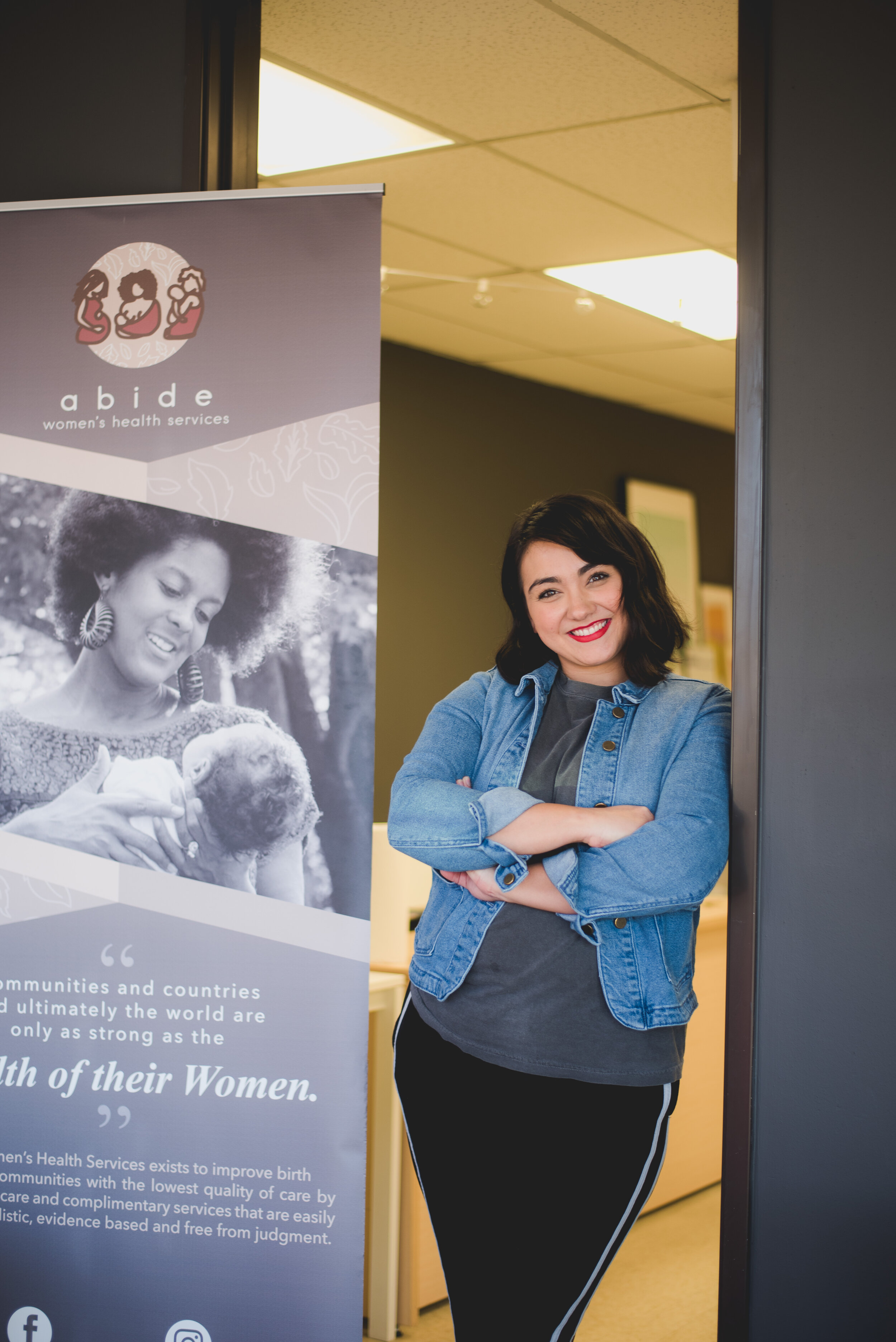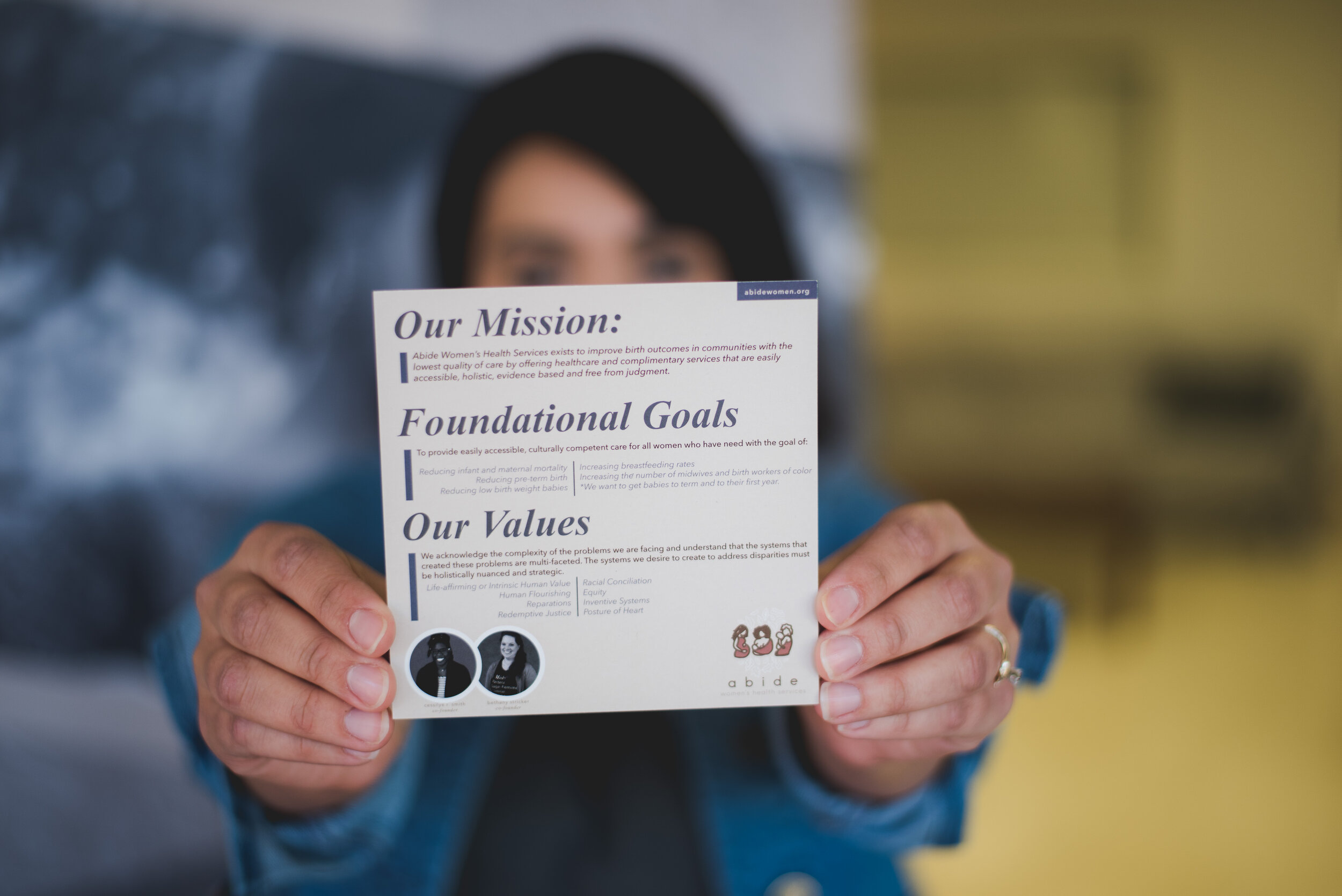Interview by Tiara Burns. Story by Dallas Doing Good Editorial Team.
Photos by Stephanie Daniels.
Pregnant with her second child, Dallas-native Brianna Davila had a dream to do more with her career. At the time, she was working at a chemical company. There were many days after work when she’d get home and tell her husband, “I’m supposed to be doing something better, something to benefit our world, to shape our women and to help women.” So after her second child, Zion, was born, Brianna became a doula. “I needed to chase my dreams,” she says.

Brianna says her path to becoming a doula was inspired by her first pregnancy. “It transformed what I wanted to do in life,” she says. “I decided to have my firstborn naturally at a birth center. It was important for me to be in a caring environment, and that decision led me to where I am today. I fell in love with evidence-based, holistic health care, especially in childbirth.” It was such a positive experience, Brianna decided that she wanted to help other women receive the same kind of compassionate care that had been available to her.
As Briana went through BEST Doula Training, she learned about a set of statistics that have been driving the national conversation about women, health care, and race. Although the maternal mortality rate has been steadily declining in the developed world, it has sharply increased in the United States. According to the CDC, approximately 700 women die each year due to pregnancy-related complications. Closer to home, the Maternal Mortality and Morbidity Task Force identified 382 maternal deaths in Texas between the years 2012 and 2015. The task force found that in 2012, the maternal mortality rate for black women was 2.3 times higher than the rate for white women. For hispanic women, the rate was 1.5 times higher than the rate for white women. The task force also found that approximately 80 percent of all of these deaths could have been prevented.
The statistics are sobering. “I was angry at that moment,” says Brianna. “It just isn’t right. Why are black women dying at this rate?” Though her instructors had introduced the topic, there wasn’t much time for discussion. However, during her training, she had her opportunity to participate in implicit bias training with Cessilye Smith of Abide Women’s Health Services. “It was in this training that I learned to relinquish all of my biases and any preconceived notions about specific groups of women,” says Brianna.

Abide Women’s Health Services was founded by Cessilye Smith to advocate for underserved women in South Dallas and to ensure that they have access to quality, culturally competent maternity care—throughout a pregnancy, during childbirth, and up to a year after the baby is born. They lead educational workshops and connect women with local area resources such as labor and postpartum support through their network of professional contacts. They also support black-student midwives and doulas through fundraisers. “We also offer the community any type of resources we can,” says Briana, “like diapers, wipes, pads, tampons, blankets, toothbrushes, deodorant—anything we can get our hands on that’s mom-related or baby-related.”
Upon earning her doula certification last year, Brianna began volunteering with Abide. A few months later, she joined the leadership team as the office manager. It is an organization she is very proud to be a part of. “As office manager, I want to be that person that our women see when they come in. I want them to feel like they’re at home,” she says. No matter what the circumstances of their clients, “we are still going to give you the care that you need—free from judgment, holistic, evidence-based care.”

Recently, in fact, the team worked closely with an undocumented individual who was far along into her pregnancy but had never seen a doctor for prenatal care. She was terrified she would be surrendered to immigration. “She had never heard her baby’s heartbeat or seen an ultrasound,” says Brianna. “So she came to us for help. Although we do not have a doctor on staff, we were able connect her with a physician so she could hear her baby’s heartbeat for the first time.”
At Abide Women’s Health Center, “it doesn’t matter where you’re from,” Brianna explains. “It doesn’t matter what color you are, or what your background is. It doesn’t matter if you are documented or not. Every mother deserves thoughtful care.”
To find out how you can support the mission of Abide Women’s Center, visit their website at www.abidewomen.org. You can also contact the organization by calling 972-474-6311 or by email at info@abidewomen.org.
If you know someone who is Doing Good in Dallas, we’d love to hear about it! Share their story with us.